At Akramawi, a 65-year-old hummus joint by Damascus Gate in Jerusalem, a cook named Nader Tarawe was demonstrating to me best practices to get ready hummus. The formula for hummus b'tahini (as the dish is named; 'hummus' basically signifies 'chickpeas'), comprises of chickpeas, tahini, garlic and lemon. Since it's moderately easy to make, the varieties lie more in how it's served. Would it be a good idea for it to be it smooth or knotty, heavier on the tahini or on the chickpeas, delegated with fava beans or more chickpeas or pine nuts or ground hamburger? What's more, what's as an afterthought? Chips? Pickles? Hot sauce? Falafel?

Tarawe finished each plate of hummus with a touch of tahini and a sprinkling of olive oil. "Oil is great," he stated, a coincidental Middle East representation. Hummus is a local analogy, as well: adored everywhere throughout the world, it's yet another wellspring of strain, yet another inquiry of proprietorship. Who designed the dish? Who can assert it as their own?
Everybody from the Greeks to the Turks to the Syrians have attempted, yet there's little confirmation for any hypothesis. The majority of the fixings have been around for quite a long time: the chickpea goes back over 10,000 years in Turkey and is, as indicated by Anissa Helou, Syrian-Lebanese writer of a few Middle Eastern cookbooks, "one of the most punctual vegetables at any point developed." And tahini, the sesame glue that is crucial to hummus b'tahini, is said in thirteenth Century Arabic cookbooks. In any case, the mix of fixings that make up the famous dish is harder to bind.

"It's a Jewish nourishment," said cook Tom Kabalo of Raq Hummus in Israel's Golan Heights a couple of days after the fact. "It was said in our book of scriptures 3,500 years back." I was in his eatery eating his Tuesday uncommon. Since it was October, the uncommon was 'Halloween hummus', embellished with destroyed pumpkin and dark tahini.
He's not by any means the only one who revealed to me that hummus is scriptural. Kabalo and others are alluding to an entry from the Book of Ruth, some portion of the third and last area of the Hebrew Bible: "Come here, and eat of the bread, and dunk thy piece in the hometz."
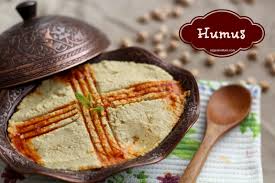
While it's actual that hometz sounds like hummus, there's additionally a justifiable reason motivation to accept something else: in current Hebrew, hometz implies vinegar. Obviously, 'dunk your bread in vinegar' would be an odd articulation of accommodation, so in that lies the vulnerability.
"I've heard cases that it was first developed in northern India or Nepal," said Oren Rosenfeld, essayist and chief of Hummus! The Movie. Said Liora Gvion, creator of Beyond Hummus and Falafel: Social and Political Aspects of Palestinian Food in Israel, "I think it is an old and idiotic open deliberation that isn't justified regardless of one's consideration."
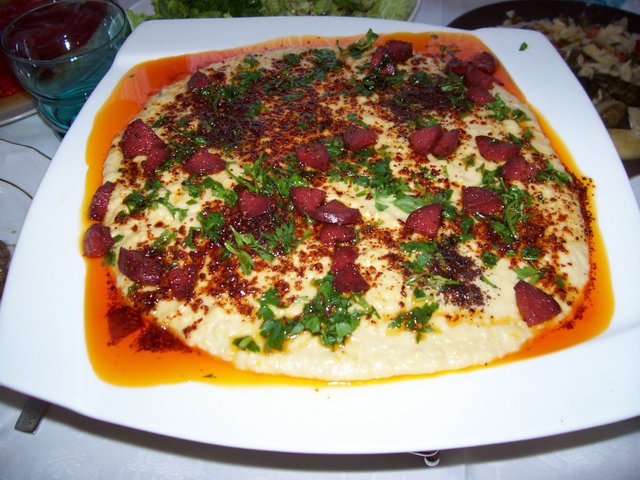
However, for some, the subject of where hummus originates from is totally a matter of patriotism and character. The now amazing 'Hummus Wars' started in 2008 when Lebanon blamed Israel for capitalizing on what they accepted ought to have been Lebanon's heritage, exposure and cash. The leader of the Association of Lebanese Industrialists, irate that hummus had come to be referred to and promoted all through the west as an Israeli dish, sued Israel for encroachment of nourishment copyright laws. The Lebanese government appealed to the EU to perceive hummus as Lebanese. The two endeavors demonstrated inadequate.
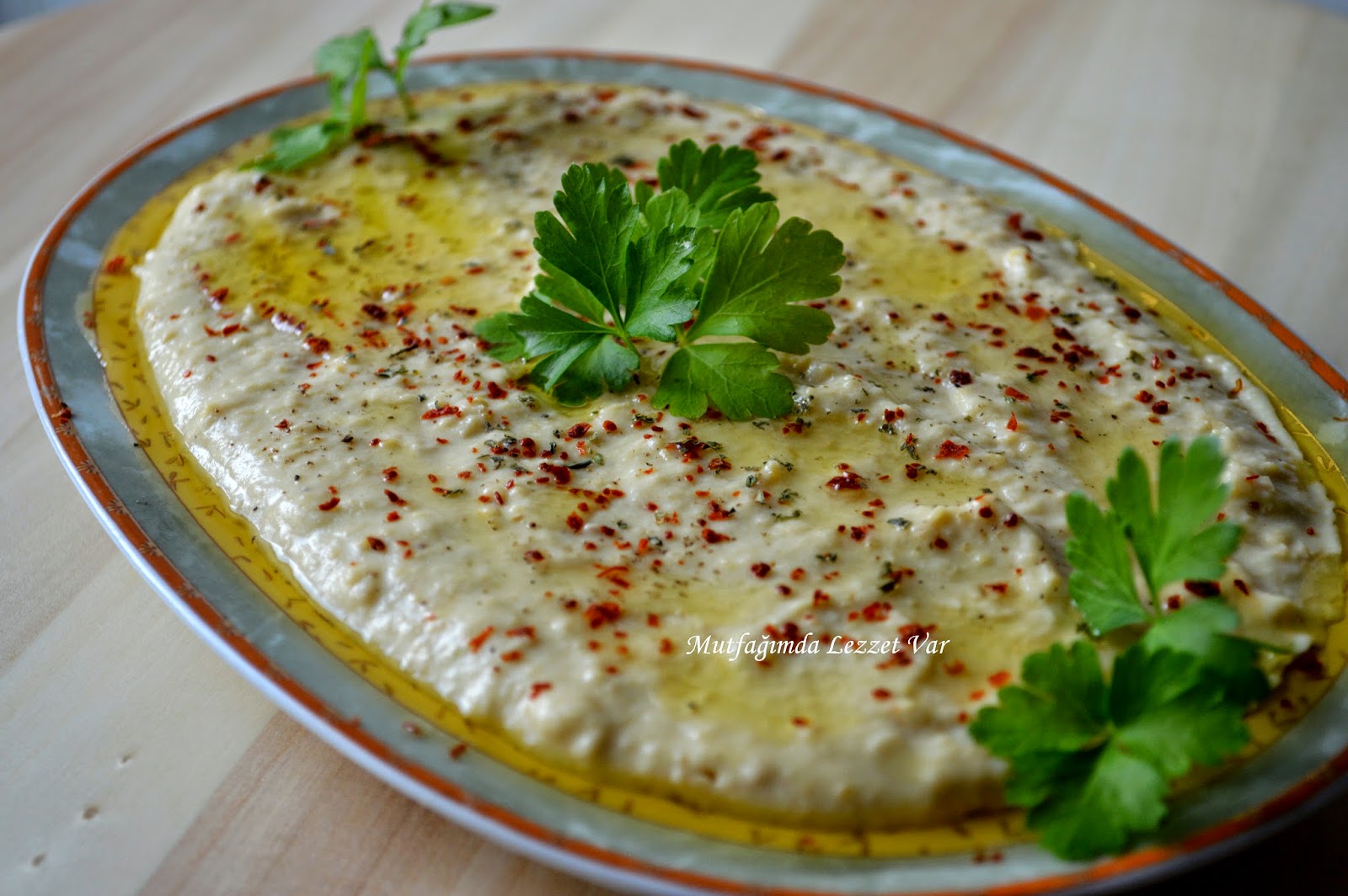
Social allocation is an intriguing issue in the sustenance world (simply ask the Peruvians and Chileans who claims pisco, for instance), so the hummus verbal confrontation could have produced a fascinating discussion. Rather, the entire thing declined into the culinary form of a move off: in 2009, Fadi Abboud, Lebanese pastor of tourism, chose that the best approach to settle the issue for the last time was for Lebanon to make a plate of hummus so expansive it would be perceived by the Guinness Book of World Records. The objective was accomplished, the record set with a plate of hummus that weighed around 2,000kg. Accordingly, Jawdat Ibrahim, an acclaimed Arab-Israeli hummus joint in Abu Ghosh, Israel, struck back with hummus served in a satellite dish that had a distance across of 6.5m – around 4,000kg of hummus. At that point the Lebanese counter-assaulted with 10,452kg of the plunge – the quantity of square kilometers of Lebanon. They have held the record since 2010.

"Lebanon's endeavors were intriguing, however they can't be considered important," Rosenfeld said. "Hummus is a Middle Eastern sustenance guaranteed by all and claimed by none."
The vast majority who discuss the Hummus Wars hold Rosenfeld's political view. In any case, American sustenance history specialist Charles Perry, leader of the Culinary Historians of Southern California and a specialist on medieval Arab nourishment, gives Lebanon some credit.
"I tend to consider the Lebanese claim to some degree important," he said. "Beirut would be my second decision because of the topic of who developed hummus. It emerged as an advanced city all through the Middle Ages, one with a fiery culinary custom, and lemons were plentiful there."
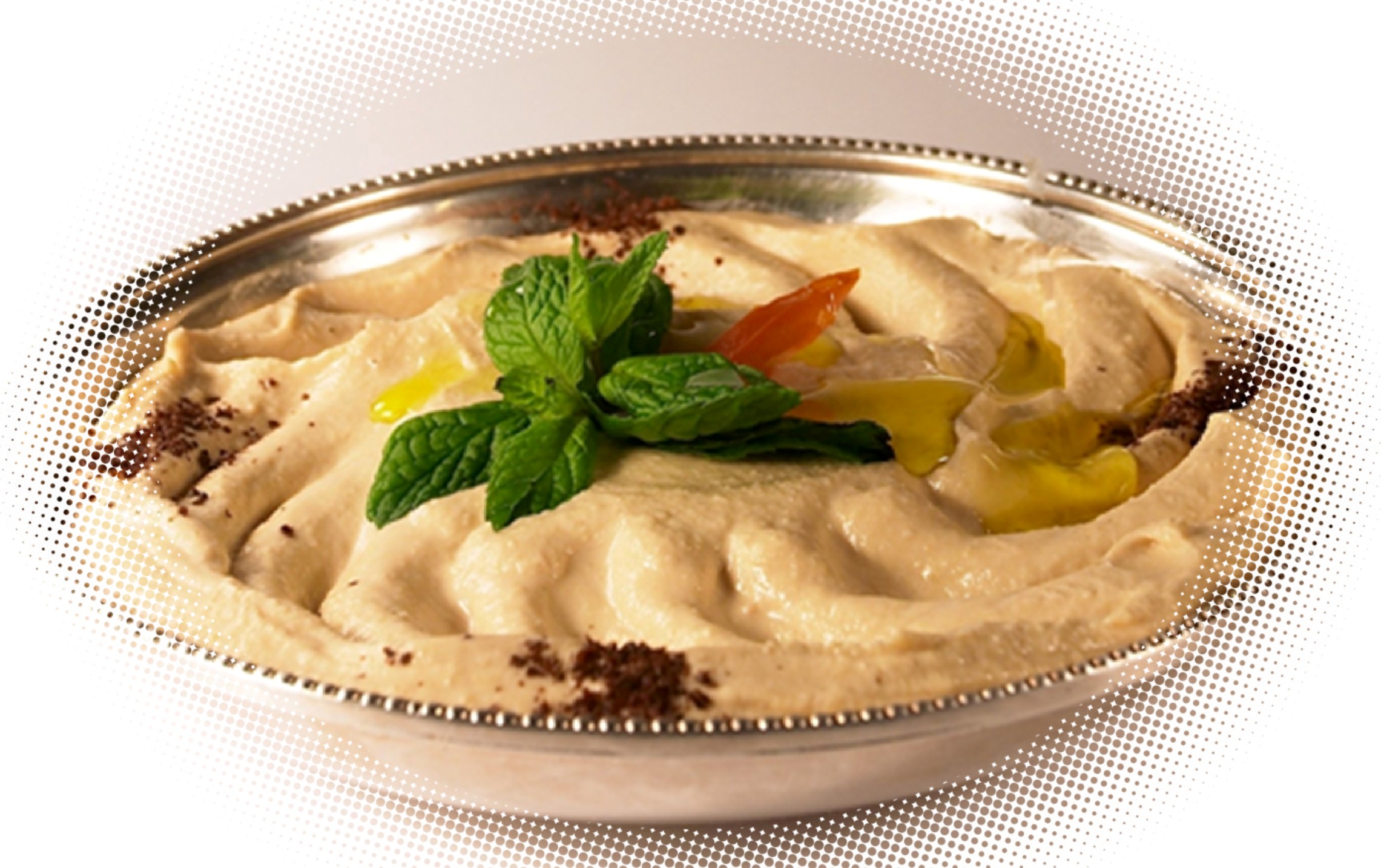
Yet, Damascus, Syria, strikes him as the more probable applicant. He clarified that the customary method for serving hummus all through a great part of the Middle East is in a specific red mud bowl with a raised edge. The hummus is rushed around energetically with a pestle so it hills up along that edge. Not exclusively does this present the hummus helpfully to pick up with bread, it demonstrates that the hummus has the best possible surface, neither excessively slack nor too firm.
"The act of whipping hummus up against the mass of the bowl shows a modern urban item, not an antiquated society dish. I'm slanted to think hummus was created for the Turkish rulers in Damascus," Perry said.
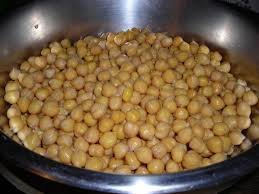
Clarifying his decision, he proceeded with: "It's not possible for anyone to state who concocted hummus, or when. Or on the other hand where, especially given the excitement with which individuals in the Middle East get each other's dishes. Be that as it may, I connect it with Damascus in the eighteenth Century since it was the biggest city with an advanced governing class," he said.
Nonetheless, another well known hypothesis says that hummus is neither scriptural nor Lebanese nor Syrian, yet Egyptian. "The most punctual formula I've seen for hummus that incorporates tahini is from an Egyptian cookbook," said Middle East student of history Ari Ariel, who shows history and worldwide examinations at the University of Iowa. Cookbooks from thirteenth Century Cairo depict a dish made of chilly pureed chickpeas, vinegar, salted lemon and herbs and flavors. Many claim that it's the hummus we appreciate today. Be that as it may, is it reasonable for consider those formulas hummus b'tahini if there's no tahini? No garlic?
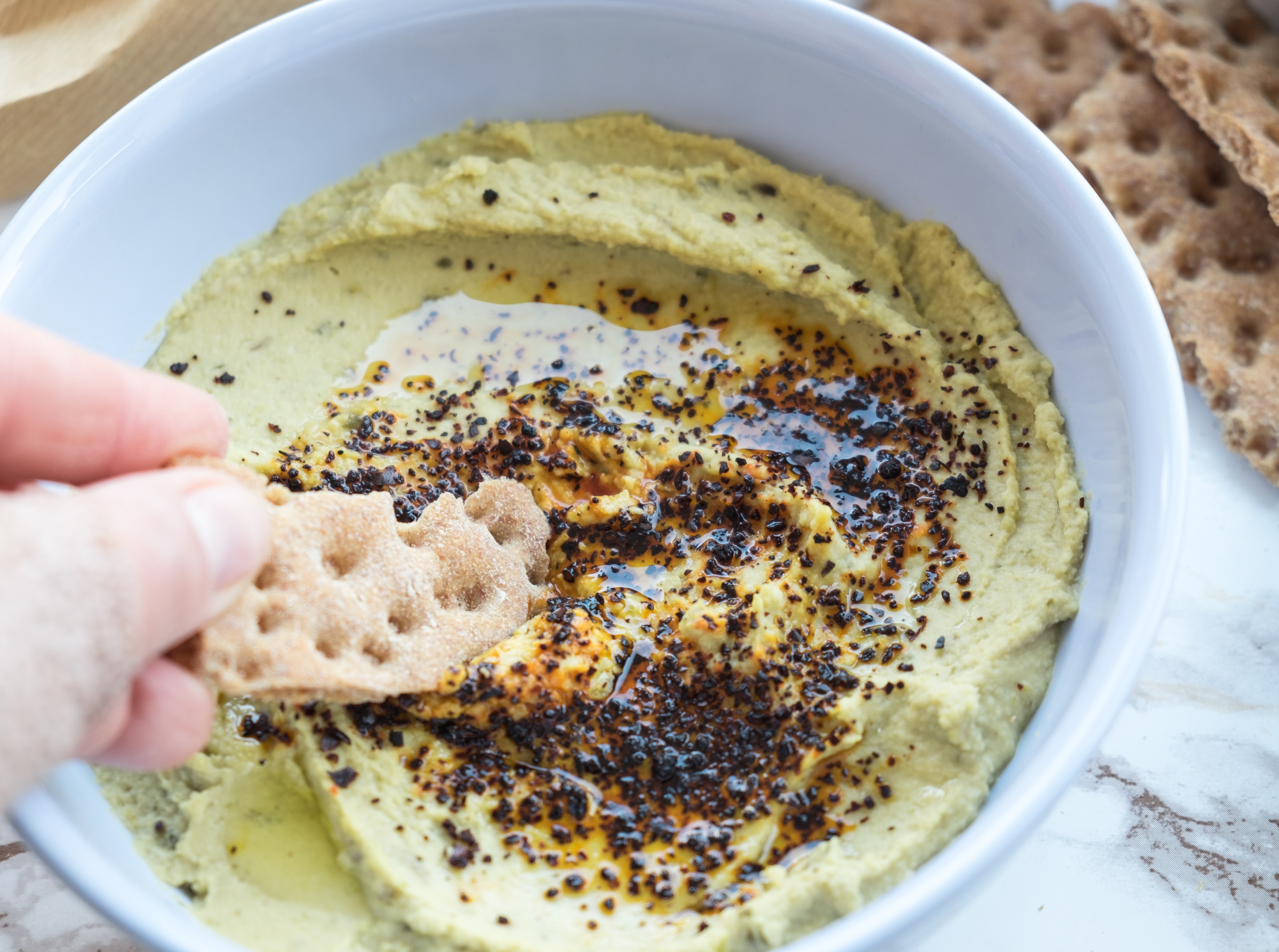
"The thing you need to shoulder as a top priority about chronicled cookbooks," Perry stated, "is that they tend to record chic dishes, and in vogue dishes in the long run end up noticeably unfashionable, so an advanced dish that to some degree takes after an old one might not have an authentic association." in light of the Egypt hypothesis, he proceeded, "Verifiably, Egypt has will probably embrace Syrian dishes than the other way around."
Back at Akramawi, I sat at a shared table where I met Noam Yatsiv, a visit manage from the Israeli port city Haifa, who considers his hummus important. He revealed to me that he eats hummus five times each week and has a puppy named Hummus, and that hummus originates from Syria, Lebanon, Israel and Palestine.
"Every one of them?" I inquired.
Yatsiv shrugged. He revealed to me that it doesn't make a difference where it's from. What makes a difference is how it's been co-picked and sold monetarily in markets in plastic holders. "That is not hummus!" he stated, tearing a bit of pita. "There ought to be a sign on that hummus the path there is on 'fit shrimp'. It ought to be marked 'phony hummus'. There ought to be a worldwide law."
wow yummy delicious food nice post bro keep it up.
Downvoting a post can decrease pending rewards and make it less visible. Common reasons:
Submit
thank you bro @sameer62
Downvoting a post can decrease pending rewards and make it less visible. Common reasons:
Submit
Hi. I am @greetbot - a bot that uses AI to look for newbies who write good content.
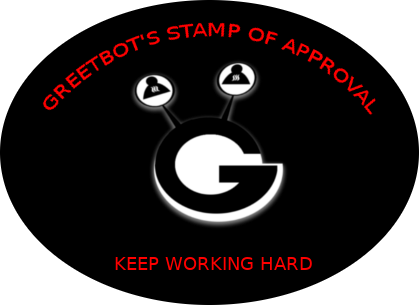
I found your post and decided to help you get noticed.
I will pay a resteeming service to resteem your post,
and I'll give you my stamp of automatic approval!
Downvoting a post can decrease pending rewards and make it less visible. Common reasons:
Submit
Resteemed by @resteembot! Good Luck!
The resteem was payed by @greetbot
Curious?
The @resteembot's introduction post
Get more from @resteembot with the #resteembotsentme initiative
Check out the great posts I already resteemed.
Downvoting a post can decrease pending rewards and make it less visible. Common reasons:
Submit